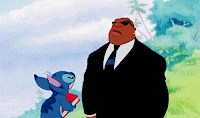Hello, again. Welcome back to this special series within the ranty blog, my ongoing attempt to show how we can go from a few basic raw ideas all the way to a finished book manuscript. Ready to dive back in?
This time I wanted to talk about my character’s story. Yeah, this is why I’ve been reluctant to describe the *cough* ongoing narrative of the manuscript as a story. For what we’re doing here, that word’s going to mean something specific.
If you’ve been following the ranty blog for any time at all, you’ve probably heard me make this distinction once or thrice. Plot is what happens outside my characters, story is what happens inside my characters. My plot is a progression of external changes, but the story is a progression of internal changes. You may have heard people (maybe me) toss around phrases like “character arc,” and that’s closely related to the story.
Plot takes us from normal events to amazing ones and then gives us some kind of resolution, right? Well story is going to take my character from the person they start out as at the beginning of my manuscript through some kind of growth and development to a new normal. The person they’ve grown into, the more educated, wiser person they’ve become.
To be clear, this doesn’t mean some massive, epic change. I don’t need Republicans to become Democrats, villains to become heroes, saints to become arch-heretics. I think if people change too much, especially over a short period of time, it’s tough to make it believable.
But if my characters don’t grow and change at least a little bit during the story, I think things tend to feel a bit flat. Our heroine realizing Wakko isn’t really the one for her is growth. Dot finally standing up to her abusive boss is change. Yakko realizing maybe it’s not all about the money is an arc.
I’ll also toss out that when I’m getting hung up on stuff in a book, I’d guess maybe four out of five times I realize it’s because I’m neglecting the story. My characters sort of flattened out because I haven’t figured out how they’re growing. or I haven’t done anything in the story to make them grow. I rewrote the end of one book because I realized the first ending completely neglected the main character’s story.
Let’s start breaking this down…
I think there are four parts to a person’s story. They’re not super-solid, and they kinda flow and overlap a bit. That’s only natural. We’re talking about who people are on the inside, and most people (the interesting ones, anyway) tend to be a big mess of overlaps and contradictions. Plus, I’ve been thinking about this for a while, but right now is the first time I’ve tried to put it all down. So, yes, this post you’re reading has been rewritten and tweaked a hundred times or so.
In my opinion, the first part of a character’s story is who they are when the story begins, which we could think of as their history or backstory. Second is why they decide to take action, a lot of which is their motivation. Third is how they’re made to change, which leads into the fourth and final bit—who are they in the end.
Worth noting right now that if I have multiple heroes in my manuscript, they’re all going to have their own story. Maybe even some of my supporting characters, too. And my antagonist. I want my characters to be real, interesting people, which means they need to grow and learn things. So when I’m writing a book, I’m going to be going through these beats more than once, with different characters each time.
Let’s talk details.
The first part of the story is… the starting point. Who is my character when my story begins? Are they mean? Submissive? Stingy? Self-absorbed? What about them stands out and what makes them blend in?
Another way to think of it is why are they this character when the story begins. What’s happened in their past to make them the person they are on page one? Because unless I’m starting very, very early in their lives, they had an existence before page one. They had incidents and events and relationships.
To be clear—and I’ve said this a few times before—this doesn’ t mean I need to spell all these details out. If they’re relevant, they’re going to come out naturally as I tell my story. I don’t have to do a massive infodump and get every little fact of my character’s existence on the page. But, as the writer, I need to know them and be sure my characters are consistent throughout the story, always reflecting the experiences that made them the people they are… and not the bit of backstory I just thought to bring up a hundred pages in.
 Let’s use Phoebe, for an example. She’s our lead character, right? Well, when we first meet her, she’s maybe going to be a little on the uptight side. Because of her parents’ death a few years ago, she’s been shouldering a lot of responsibility. There’s her sister, Luna, who’s she responsible for. There’s also carrying on the family tradition of werewolf hunting, which maybe also wasn’t what she grew up wanting to be, but… it’s tradition. Imagine getting both of these things thrust on you when you thought you were going to be heading off to college. And it’s an inherently dangerous job, so doing it is constantly reminding her that if she gets hurt, Luna’s going to lose everything.
Let’s use Phoebe, for an example. She’s our lead character, right? Well, when we first meet her, she’s maybe going to be a little on the uptight side. Because of her parents’ death a few years ago, she’s been shouldering a lot of responsibility. There’s her sister, Luna, who’s she responsible for. There’s also carrying on the family tradition of werewolf hunting, which maybe also wasn’t what she grew up wanting to be, but… it’s tradition. Imagine getting both of these things thrust on you when you thought you were going to be heading off to college. And it’s an inherently dangerous job, so doing it is constantly reminding her that if she gets hurt, Luna’s going to lose everything.
Phoebe probably focuses a little too much on money because of all this. She doesn’t exactly earn piles of money for hunting werewolves, and she’s supporting her sister, so it’s going to be something she focuses on a lot. Heck, maybe she’s even got a second job? Make a note of that somewhere—in a world where everyone knows werewolves are real, maybe she still has to run a cash register twenty-seven days out of every month.
And would it be that shocking if… well, maybe she’s carrying some anger and resentment, too. Yeah, she loves Luna. She loved her parents. But, if they hadn’t gotten themselves killed, if they hadn’t stuck her with Luna, if they hadn’t made her part of this whole family dynasty going back 400 years… jeeeez, where would she be now.
So that’s where Phoebe’s starting from.
The second part of story is why my characters decide to take action. What about who they are right now motivates them to take part in the plot when the opportunity arises? Why aren’t they one of the thousands of people who aren’t taking part in the narrative?
This one’s going to be important because this’ll probably be the first significant decision we see our character make. And we’re going to expect a lot of the decisions that follow (this is just a simplified version of the story after all) will all line up and make sense with the character as we know them. So I need a solid, believable motivation behind this bit of in-character reasoning. The last thing I want is a plot zombie (very cool term, copyright 2018 A. Lee Martinez) who’s only acting in service of the plot, not out of any actual developed character traits.
I’ll also toss out that there are very basic motivations it’s tempting to fall back on. We all want to survive, so running away from a lunging werewolf makes absolute, perfect sense. Boom—we’re in the story, right? The catch here is that we don’t want characters who are going to do what anyone would do. We want them to make an active decision, not a reactive one. This doesn’t mean I can’t begin with my hero running for their life, but I’m going to want a little more to it than that.
For example, on one level this part is a little easier for Phoebe. She’s a werewolf hunter and there’s a new breed of werewolf out there. It’s a different element in her job, but it’s still pretty clearly her job. There’s a werewolf, she goes to hunt it, boom—we’re in the story.
But we want her to be making active decisions, so how can we tweak this a bit? Well, when she tried to dispatch this werewolf, a silver crossbow bolt to the heart did nothing. What if nobody believed her? Her shot probably just missed, right? That’s what everyone’s going to think. Hell, that’s what that bastard Luc is going to tell everyone. So this is a matter of pride for her to prove the super-werewolf is real

Maybe there’s even a little more to it than that. Maybe someone at the lodge believes her, or is at least willing to humor her for now. And maybe they’ll pay an extra $2500 dollars for the bounty if she brings in a lycanthrope body that shows a definitive mutation. Well, now Phoebe’s got serious motivation to get that werewolf… and to get it before Luc. I mean, $2500 is two months rent and utilities covered. Like, full utilities. Leaving some lights on and taking lots of hot showers. Really long, hot showers.
So now Phoebe’s got a good reason to get into my plot.
Our third part is change. What’s going to happen in the plot that’ll make my character rethink things? I’ve brought up this idea before, that I think plot tends to be active while story overall is reactive. My characters can act on the outside stuff, but a lot of internal stuff is much harder to control.
Look at it this way. Nobody wakes up one morning and spontaneously decides to change their view on gun control or open relationships or Josh Trank’s Fantastic Four movie. Outside forces affect and influence them. They experience things, and these things help them—often force them—to change their opinion.
In the same way, the things my character experiences within the plot are going to change them internally. That change will be part of their story, which then means they’re going to be making different decisions and reacting in new ways as the plot continues. It’s kind of a feedback loop. Make sense?
Let’s look at Phoebe again. Last time I mentioned that her sister’s going to be a legal adult soon, and that’s probably causing some friction in the household. Phoebe’s been responsible for Luna for years now, and that’s coming to an end. Is it a relief? Does she feel guilty that she’s relieved? Has she done a good job raising her sister?
 We also talked about the other big issue. Luna is the super-werewolf. Why? How? Phoebe’s whole job—that whole big family tradition—is killing werewolves. So is she protecting the family name by killing Luna or by not killing Luna. And this really drives home that all these werewolves have been somebody’s kid sister or big brother or loving parent. Yeah, some of them were actual, secret monsters, reveling in what they’d become, but how many of them were just victims? Her victims?
We also talked about the other big issue. Luna is the super-werewolf. Why? How? Phoebe’s whole job—that whole big family tradition—is killing werewolves. So is she protecting the family name by killing Luna or by not killing Luna. And this really drives home that all these werewolves have been somebody’s kid sister or big brother or loving parent. Yeah, some of them were actual, secret monsters, reveling in what they’d become, but how many of them were just victims? Her victims?
And this will also introduce some conflict at the lodge. We can guess how most of the elders think her “purely hypothetical” problem should be resolved. Or how Luc would deal with it.Also, maybe something else at the lodge. Maybe we should be looking at the work/family overlap of exactly what happened to her parents. This could be another place to wedge in some conflict and break some trusts. Let’s make another note to poke at this some more. I think this could be something really world-changing for Phoebe.
Also-also, do I want her to change on a more personal level? I’d mentioned possible love interests last time, but as I’ve been thinking about it… no, no I don’t think so. She was already thinking relationships were going to overcomplicate things before all this happened, so during it? No, I don’t think so. I’m not against planting some seeds for much later (hey, this might start a series), but I think in the interpersonal department, Phoebe’s just going to keep doing things (and random bar patrons) the way she’s always been. For now, anyway.
Our final part is the end of our character’s story. Who have they become? Who did this series of events turn them into? How did it help them grow? In some cases this might be really clear. In others, it might be more subtle. But I’m a big believer that in most good books we need to see some change and growth in our characters.
The reason for this, I think, is that it’s tough for us to believe as people (and readers) that someone can go through a major, life-altering event and not, well, have their life altered. After I’m recruited by that nymphomaniac heiress to fight cyborg ninjas from the future for two weeks, it’s tough to believe I’m just going to go back to my life as an insurance risk analyst. Even if I want to, I’ve seen and experienced things that’ve changed me and probably made it impossible to fall back into that same old rut. I no longer think or react like that person I used to be.
Now, I don’t have a ton to say about this part for a couple of reasons. Really, it’s all the same reason, but I want to come at it from two different angles. Hopefully that’ll make it easier to see.
One is when we talk about these changes, we’re talking about a butterfly effect sort of thing. Tiny differences then can make big differences down the line. I may have a general idea how I want my character to end up, but I probably won’t know exactly how they end up until I’m writing this. That end change is going to depend on all the different experiences and talks that come before it, and I may realize that writing out this key bit of dialogue with a few different words and a slightly different tone leads to a somewhat different take at the end. It’s easy to plan out the end of a plot, not quite so easy with story. That’s what I’ve found anyway.
The flipside of this is that if I absolutely 100% know what I want that end change to be (“…and so Wakko became a proud defender of the second amendment for the rest of his days…”) there’s a good chance I’m writing a story with a message. By which I mean the message is probably more important to me than the story itself. There’s nothing wrong with this, in general, but I don’t want to end up twisting my story to make it all fit the story ending I want. That almost always makes things feel artificial, forced, and unearned.
 Looking at Phoebe again, I know I want to end with her looking at her sister in a new light, possibly a full role-reversal for them (yeah, her sister’s going to survive). I also know I want to end with her estranged from the lodge and feeling very different about her job as a werewolf hunter, but being okay with that. So I know she’s coming out of this in a better place mentally even if some of her initial worries haven’t been dealt with.
Looking at Phoebe again, I know I want to end with her looking at her sister in a new light, possibly a full role-reversal for them (yeah, her sister’s going to survive). I also know I want to end with her estranged from the lodge and feeling very different about her job as a werewolf hunter, but being okay with that. So I know she’s coming out of this in a better place mentally even if some of her initial worries haven’t been dealt with.
Story in four parts. Make sense? Any questions?
Want another example? Okay, let’s take a quick look at Phoebe’s sister, Luna, who’s going to be one of our other major characters. Luna’s basic four part story would probably be something like this…
Luna starts as a pretty typical teen. Big dreams, good-sized rebellious streak, and a wild mix of interacting hormones. Had a serious boyfriend or two. Maybe a girlfriend, too. She and Phoebe have a love-hate relationship that’s been more or less forced on them by the situation they’ve been forced into. They both want the fun, loving relationship they used to have, but also know why they can’t right now. Also, I think I’m going to say right up front that Luna is the werewolf at this point but doesn’t know it. She just knows there’s some weird changes going on in her body that she’s writing off as end-of-puberty hormones and/or end-of-this-phase-of-you-life stress.
 Her big actions, closely related, are admitting to herself she’s a werewolf (with all it implies), hiding it for a while (because she’s a teenager who knows what her sister does for a living), and then confessing it to Phoebe (with all it might mean). She’s not in the family business yet, but she knows enough that eventually she can’t deny what these weird mornings mean. There’s only so many times you can wake up naked in the garden with dirty feet—you’re either a werewolf or you have a serious drinking problem (maybe both). When she hears her sister talking about the hunt, how dangerous the beast is, Luna’s going to realize how much of a risk she poses, to herself and to Phoebe, if she’s allowed to run free.
Her big actions, closely related, are admitting to herself she’s a werewolf (with all it implies), hiding it for a while (because she’s a teenager who knows what her sister does for a living), and then confessing it to Phoebe (with all it might mean). She’s not in the family business yet, but she knows enough that eventually she can’t deny what these weird mornings mean. There’s only so many times you can wake up naked in the garden with dirty feet—you’re either a werewolf or you have a serious drinking problem (maybe both). When she hears her sister talking about the hunt, how dangerous the beast is, Luna’s going to realize how much of a risk she poses, to herself and to Phoebe, if she’s allowed to run free.
How will these decisions change her? Well, at first she’ll become much more secretive and nervous, which can get interpreted a bunch of different ways. Once she confesses to Phoebe, there might be even more fear, but this will eventually become relief, and she’ll be a lot more open with her sister than she’s been in ages. About a bunch of things. She’s also going to feel better about herself once their discussions confirm she’s not a doomed-to-be-evil monster. She’s going to have a purpose.
Who does this make her in the end? She’s going to be more mature, a little more responsible (in some areas, anyway). And she’s going to have a very, very different view of all these lodge folks she’s known for most of her life. “You know who your real friends are when X happens and most people…”
So that’s my completely untested, four step guide to story, our character’s internal journey. If you want a little more, it’s a topic I’ve talked about a few times here (as I mentioned up at the top). Please feel free to hit the assorted links and hopefully I haven’t contradicted myself too much anywhere.
Also, there’s a good chance you’re already doing a lot of this without thinking about it.
Next time on the ranty blog, I’d like to talk a bit about length.
Next time for the A2Q, which will be in two weeks, I want to talk about my book’s setting.
Until then… go write.


















